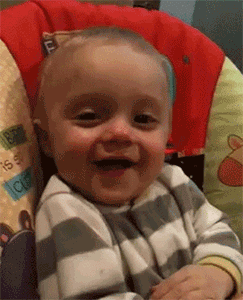
11 Jun How to Stop Hiccups in Newborns
3 min. readThere are many parents of newborns who have questions about their babies and about all of the unique quirks and mannerisms that their babies have. Some of the many questions that we as pediatricians tend to get about babies has to do with hiccups.
Most parents know that babies hiccup quite a bit especially around feeding, but there are many parents who grow concerned when their baby won’t stophiccupping and want to know how they can stop or prevent hiccups in their newborn.
The first and most important thing for every parent to remember is that there is no way to actually “stop” hiccups. And the good news is, in most situations, hiccups, even prolonged hiccups are absolutely nothing to worry about. However, there are still some tips that might help prevent hiccups from happening and important information you should know about hiccups.
We are here to help you get a better understanding of what hiccups are, how you might help prevent them, and when it is time to see your pediatrician with hiccup-related issues.
What Causes Newborn Hiccups?
Hiccups happen when something causes our baby’s diaphragm to spasm and their vocal cords to shut quickly. Air is then forced out through these close vocal cords which creates the hiccupping sound. While hiccups can occur for apparently no reason in babies—feeding can occasionally cause the baby’s diaphragm to spasm.
Typically, this occurs after overfeeding, eating too quickly, or swallowing too much air. The good news is, while some adults find hiccups to be uncomfortable, they tend to cause less distress in babies.
How to Prevent Baby Hiccups
Here are a few things that you can do in order to lessen the chances of your baby getting the hiccups.
Take feeding breaks to burp your baby. When your stomach fills with air it can push on the diaphragm to cause spasms. If you take feeding breaks to burp your baby, you can reduce the amount of air in the stomach which prevents hiccups. Try to burp bottle-fed babies every 2-3 ounces or burp when switching breasts during breastfeeding.
Pacifiers can also help your baby by encouraging the diaphragm to relax, and to prevent hiccupping from happening. Gently rubbing your baby’s back when they are starting to hiccup can also help your baby relax and prevent hiccups from happening.
What NOT To Do When Your Baby Starts Hiccupping
The steps above could help prevent hiccups in babies, and while there are a number of tactics that adults tend to rely on when they have hiccups, these aren’t suitable for babies. Try to avoid all of the old home remedies or tropes on babies and instead just let the hiccups pass.
Don’t try to startle your baby, do not pull on their tongue or try to make your baby stick out their tongue for prolonged periods of time. You also shouldn’t make your baby sip water while upside down to prevent hiccups, this can distress your baby even more and can be dangerous.
When to Contact Your Pediatrician
If hiccups are happening frequently and causing distress—an underlying health condition may be to blame. Gastroesophageal reflux (GER) may cause frequent and distressing hiccups.
If you have questions about your baby’s health or are looking to make an appointment with one of our pediatricians contact Continuum Pediatrics at 817-617-8600 to schedule an appointment today.

